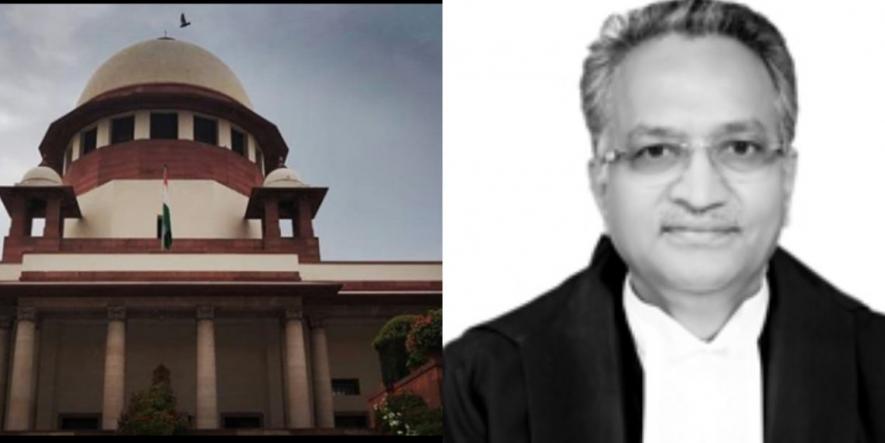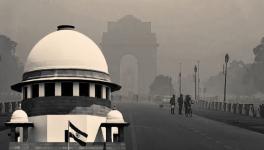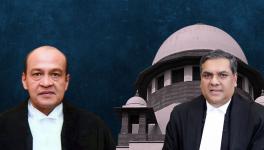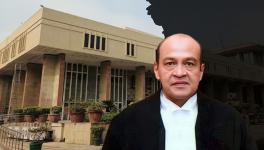Justice Khanwilkar Will Become Collegium Member After Justice Arun Mishra's Retirement

The Supreme Court’s Collegium is set to get Justice Ajay Manikrao Khanwilkar as its new member with effect from September 3 following the retirement of Justice Arun Mishra on September 2. Justice Khanwilkar will be the fifth in seniority among the judges of the Supreme Court.
Justice Khanwilkar who was appointed as judge of the top court on May 13, 2016, will continue to be in the Collegium till his retirement on July 29, 2022.
The Collegium will now comprise CJI S A Bobde, Justices N V Ramana, Rohinton F Nariman, U U Lalit and A.M. Khanwilkar.
The Collegium system for recommending to the government the names of judges for appointment to high courts, the Supreme Court as well as for the transfer of judges, was brought into existence by the Supreme Court through a judicial order in 1993.
With the retirement of Justice Mishra, the SC has four vacancies.
Justice Khanwilkar has been part of several noticeable judgments by Constitution benches during the tenure of then Chief Justice of India (CJI) Dipak Misra.
In 2018, a five-judge bench headed by then Chief Justice Dipak Misra of which Justice Khanwilkar was part of, had read down Section 377 of the Indian Penal Code (IPC) to the extent it criminalised consensual sexual acts of adults in private.
Justice Khanwilkar was also part of a constitution bench, which allowed the entry of women of all age groups into Kerala’s Sabarimala temple. However, a year later he joined the majority decision penned by the then CJI Ranjan Gogoi in a batch of review petitions filed against the Sabarimala verdict.
The majority judges, comprising the then CJI Gogoi, Justices A M Khanwilkar and Indu Malhotra kept the review petitions pending till the determination of common issues, which, according to them, might arise in other pending cases such as Muslim women in dargahs and mosques, Parsi women married to a non-Parsi in the Agyari and the practice of female genital mutilation in the Dawoodi-Bohra community.
Justice Khanwilkar was also part of a Constitution bench, which held that the right to die with dignity is a fundamental right.
He was also part of a ruling by a Constitution Bench in the famous Delhi Government vs. Centre wherein it was held that words “any matter” employed in the proviso to clause (4) of Article 239AA cannot be inferred to mean “every matter”.
In Public Interest Foundation v. Union of India, a Constitution bench of which Justice Khanwikar had been part, made the disclosure of criminal antecedents by contesting candidates mandatory and held that the disclosure of antecedents makes the election a fair one and the exercise of the right of voting by the electorate also gets sanctified.
In yet another case by a Constitution bench of which Justice Khanwilkar was a member, it held that a Parliamentary Standing Committee Report or any Parliamentary Committee Report can be taken judicial notice of and regarded as admissible in evidence, but it can neither be impinged nor challenged nor its validity called into question.
A Constitution Bench of which Justice Khanwilkar was a member had upheld the validity of Aadhaar. The bench had though struck down Section 57 of the Aadhaar Act 2016 that allowed private entities to seek Aadhaar data but had allowed the unique number to be used for government schemes and subsidies.
In Jindal Stainless Ltd. v. State of Haryana, Justice Khanwilkar was part of a nine-judge bench which by a majority of 7:2 upheld the validity of entry tax imposed by States on goods imported from other States.
Justice Khanwilkar also authored a judgment in a coram of three-judge bench allowing petitions seeking live streaming of court proceedings.
In Romila Thapar v. Union of India, Justice Khanwikar authored a judgment dismissing the petition seeking an SIT probe into the Bhima Koregaon case in which several human rights activists including Sudha Bharadwaj are facing prosecution for alleged Maoist links. The then CJI Dipak Misra had also signed the judgment penned by Justice Khanwilkar. Justice D Y Chandrachud who was also the part of the bench dissented with the majority judgment. Justice Chandrachud ordered an SIT probe.
Justice Khanwilkar was also part of the famous Hadiya case in which a three-judge bench allowed Hadiya’s reunion with her husband. He had also been part of a bench that issued a slew of directions against honour killings at the instance of Khap Panchayats. Also, a bench of which Justice Khanwilkar had been a part of issued a series of directions to combat mob lynchings.
Justice Khanwilkar hails from Maharashtra. He did his B.Com from Mulund College of Commerce, Mumbai and L.L.B. from K.C. Law College, Mumbai. He was enrolled as an Advocate on February 10, 1982. He had been the Chief Justice of the Himachal Pradesh High Court and the Madhya Pradesh High Court.
The article was originally published in The Leaflet.
Get the latest reports & analysis with people's perspective on Protests, movements & deep analytical videos, discussions of the current affairs in your Telegram app. Subscribe to NewsClick's Telegram channel & get Real-Time updates on stories, as they get published on our website.
























